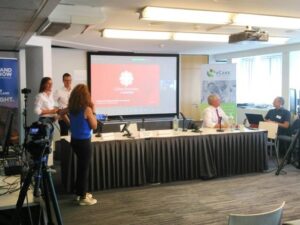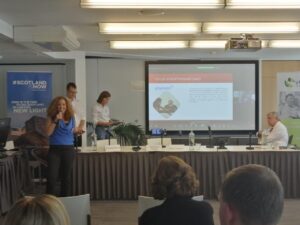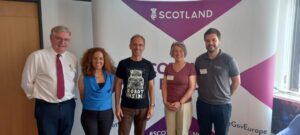Cáritas Coimbra participates in workshop on Virtual Coaches in Brussels
On August 30th, Cáritas Coimbra participates in a workshop on “Shaping a New Approach to Rehabilitation at Home with the Support of a Virtual Trainer”. This event took place in Brussels and was attended by several international entities. This workshop is part of the LIFEBOTS Exchange project, of which Cáritas Coimbra is a partner.
Cáritas Coimbra, represented by Elisabete Pitarma from the Innovation Department, was a speaker at the panel “Virtual versus physical coaches: Pros and cons”, addressing the topic from an end-user perspective. The institution presented its experience drawn from the participation in national and international projects in which technologies with virtual and/or physical coaches were and are being developed to support older people.
Besides Cáritas Coimbra, other partner entities of LIFEBOTS as well as interested organisations (universities, companies and social organisations) were present, in order to make the knowledge exchange richer and more interventive.
This initiative reinforced the importance of synergy between organisations for the creation of technologies (in this case, social robots) that effectively meet the older people’s needs. Thus, it will be possible to support older citizens in their daily tasks, also supporting their caregivers. The promotion of a more independent and autonomous life, allows these people to improve their quality of life and live longer in their own homes.
The LIFEBOTS Exchange project, in its wider spectrum, aims to increase the competencies of its consortium members by refining and focusing their skills. This workshop responded objectively to this end, with the various partners exchanging experiences on their different points of view and methodologies for action.
LIFEBOTS Exchange is composed of a consortium of 13 research entities, companies and NGOs from across Europe and South Korea. This project was approved within the framework of the Marie Sklodowska-Curie Actions (MSCA RISE), under the European Commission’s H2020 programme.


